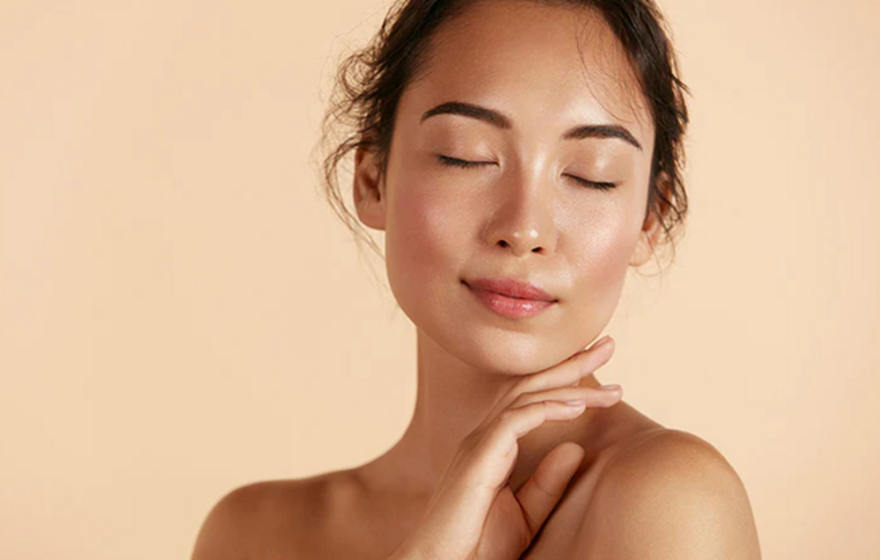
Age may just be a number, but the effects of ageing on our skin are inevitable. Luckily there are many tricks and tips you can employ in your everyday skincare routine to help combat signs of ageing to maintain a youthful and radiant look. Let’s take a look at some…
What contributes to ageing skin?
Ageing is a natural process - some consider it a privilege, for others, it can be daunting. It is natural for our skin to change as we age - from loss of elasticity to an increase in lines and wrinkles, there are multiple factors that impact how our skin ages. This can include ongoing exposure to harsh UV rays, diet, genetics, exposure to pollution, stress, overall health of your body and lifestyle choices such as smoking.1
What changes come with ageing skin?
While you may experience many or very little changes to your skin as result of ageing, some of the general signs include a rougher texture to the skin, loss of elasticity, loss of overall ‘plumpness’, increased fragility and a lack of opaqueness due to the skin thinning out.1 Visually, this can look like an increase in wrinkles, fine lines, skin tags, age spots and a more ‘sunken’ look.2
So, how can I combat ageing skin?
There are plenty of products and treatments to help combat ageing skin. These can include aesthetic treatments, such as RESTYLANE® (injectable dermal fillers) or Dysport® (an injectable neurotoxin that smoothes frown lines or crow’s feet), specialty facials, LED treatments and more! But the easiest place to start is right at home… Here are our top 6 ways to combat signs of ageing from home.
1. Use SPF!
Exposure to UV rays can be one of the biggest contributors to ageing skin. Using a broad spectrum sunscreen (SPF 50+) every single day is so important, not only to prevent signs of ageing but also to help protect yourself against sunburn and various forms of skin cancer. We recommend applying sunscreen as part of your AM skincare routine and then reapplying per the product instructions throughout the day.
2. Gentle is always better
Using gentle products and limiting your use of harsh chemicals can help minimise the effects of ageing on your skin. For example, using a chemical exfoliant such as glycolic, lactic or mandelic acid as opposed to a physical exfoliant (with granules and harsh rubbing agents), will ensure you’re not overworking your skin.3
3. Beat the clock
Even though the effects of ageing are inevitable, early prevention measures, such as broad spectrum sunscreen and seeking shade, should start in childhood and be maintained ongoing. Products such as richer, more nourishing moisturisers and chemical exfoliants can be introduced from your late 20s, depending on your skin type. Products such as a broad spectrum sunscreen, rich nourishing moisturiser and a chemical exfoliant can be used in your earlier years to help preventatively combat the effects of ageing skin, whilst simultaneously achieving a healthy skin barrier and smooth texture.4
4. Perfect your technique
Technique is key! Ensure you’re not vigorously rubbing or pulling your skin when applying your skincare. This will lessen the intensity of fine lines and wrinkles that develop as a result of trauma to the skin. Instead, gently pat your skincare on and use your most gentle finger (the ring finger) to apply any product around the eyes as this is a particularly sensitive area.5
5. Increase hydration
Hydrate, hydrate, hydrate! This is such an important part of anyone’s skincare routine and general health. Drinking plenty of water is key to hydrating your skin from the inside out, so make sure you’re getting the recommended intake every day. It’s also important to consider what moisturiser you’re using. There are many ultra hydrating moisturisers on the market at different price points. Consider including a rich, nourishing moisturiser to your skincare routine as you begin to notice dryness and skin thinning.
6. Include key ingredients such as hyaluronic acid, vitamin C and retinoids
Hyaluronic acid, vitamin C and retinoids are three ingredients that can assist in combating signs of ageing.
To improve dark spots, lessen fine lines and achieve an overall brighter appearance, use of antioxidants such as vitamin C derivatives, can be a great step to include into your routine.
Retinoids such as retinol are vitamin A derivatives that aid in slowing down the breakdown of collagen to give you a more youthful appearance through plumper, firmer skin. Retinoids can also help with smoothing the texture of your skin and reducing the appearance of acne scarring. Just make sure to only include retinol in your PM routine, starting with a low dose and then working your way up, and ensure you’re using sunscreen during the day.6
Hyaluronic acid is found naturally in our bodies and helps to retain water in our skin. Hyaluronic acid serums, lotions, oils and infused moisturisers can increase flexibility and hydration of the skin, and can aid in the healing process for cuts and abrasions, which ageing skin is more susceptible to.⁷
Remember, ageing is a natural process and doesn’t need to be feared! With plenty of at-home methods and products to help combat the signs of ageing on our skin, you’re bound to find ways that suit your skin type and lifestyle.
______
References:
- The Effects of Aging on Skin, Web MD. Accessed November 10 2022.
- Skin Care and Aging, National Institute of Aging. Accessed November 10 2022.
- 6 Anti-Aging Tips That’ll Transform Your Beauty Routine, Healthline.com. Accessed November 10 2022.
- How to apply eye cream, Healthline.com, Accessed November 10 2022.
- We Asked an Expert to Debunk 4 Common Anti-aging Skincare Myths, Adore Beauty Australia. Accessed November 10 2022.
- Retinol, Cleveland Clinic. Accessed November 10 2022.
- Hyaluronic Acid, Cleveland Clinic. Accessed November 10 2022.
NP18763, NZ-NBD-2200006